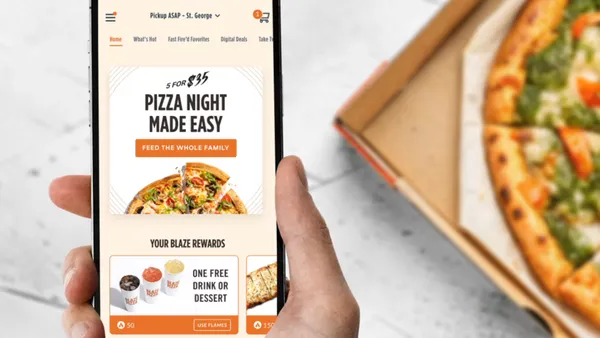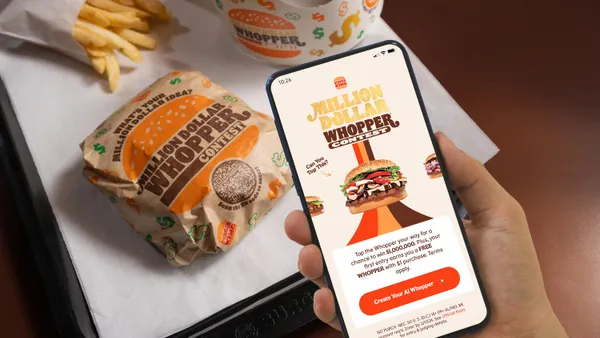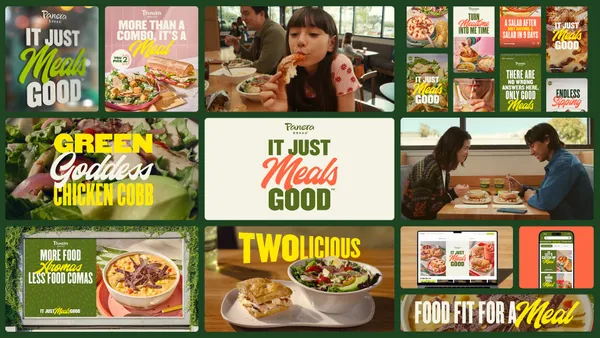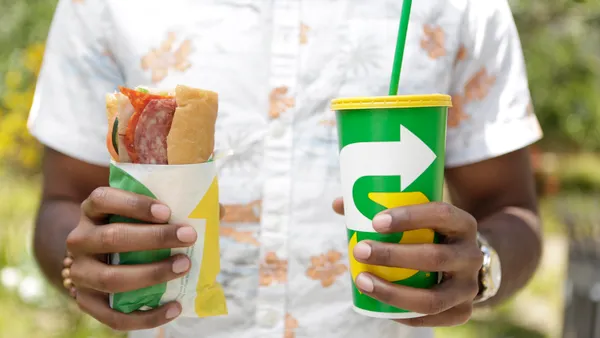Dive Brief:
- Forty-seven percent of diners now use at least one loyalty program, according to a new report from Paytronix and PYMNTS.
- The share of consumers using restaurant loyalty programs increased 12% from Jan. 22 through April 22, and the QSR segment experienced the biggest growth surge. Twenty-four percent more chain QSR customers reported using at least one restaurant's loyalty program on April 22 than on January 22.
- This data reflects a similar survey from Rewards Network, which found an increased demand for loyalty programs since the COVID-19 pandemic began in 2020. Forty-seven percent of survey respondents said reward incentives are more important than they were pre-pandemic.
Dive Insight:
This increased loyalty usage could reflect the growing number of rewards programs in the restaurant market. Several chains have recently launched or enhanced their loyalty offerings in a bid to win market share and generate return visits and higher spending.
Popeyes, for example, just launched its first-ever loyalty program, while McDonald's is preparing to roll out its MyMcDonald's Rewards next month. Taco Bell and Chipotle have also enhanced their existing programs. These offerings help restaurants capture a targeted fan base that tends to spend more money, while simultaneously honing diner data to more effectively market to them.
While a more saturated loyalty market could turn off some consumers who don't want to dedicate their mobile real estate to restaurant apps, this Paytronix/PYMNTS report finds that consumers, particularly younger consumers, want to be targeted and incentivized through such programs. The top loyalty users are millennials and bridge millennials, and they are also signing up for new loyalty programs faster than all other age groups, per the research.
The majority of diners don't seem to mind adding more apps to their phones. Nearly 60% of consumers who already use at least one loyalty program said they would spend more on food orders from other restaurants if they, too, had a loyalty program in place.
And though many restaurants have launched loyalty programs over the past year, the Paytronix/PYMTS research suggests there is still room to grow — or at least improve diner awareness. Both full-service and QSR customers were more likely to cite program unavailability as a reason for not using loyalty programs on April 22, than they were on Oct. 1, 2020, for example.
Consumer behaviors have shifted to digital ordering at a staggering pace, and those habits are likely to stick around. A new report from market research company Incisiv found that digital sales will make up 54% of QSR business by 2025 — a 70% increase over pre-COVID-19 estimates. As more consumers adopt digital ordering, offering a loyalty program in that digital space can be an effective way to be top-of-mind and incentivize users to return.
It could also induce trial. According to a 2019 Publishers Clearing House study, 19% of consumers said a loyalty program would be enough for them to try a new QSR, and 30% of respondents said they would download a restaurant app to gain loyalty points.













